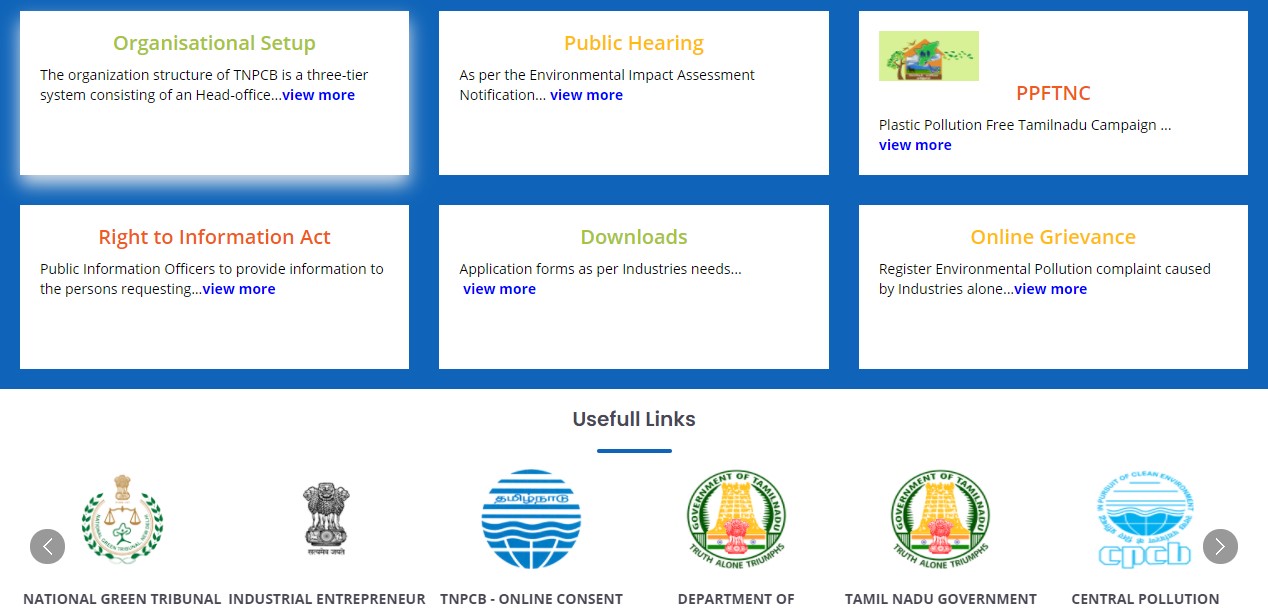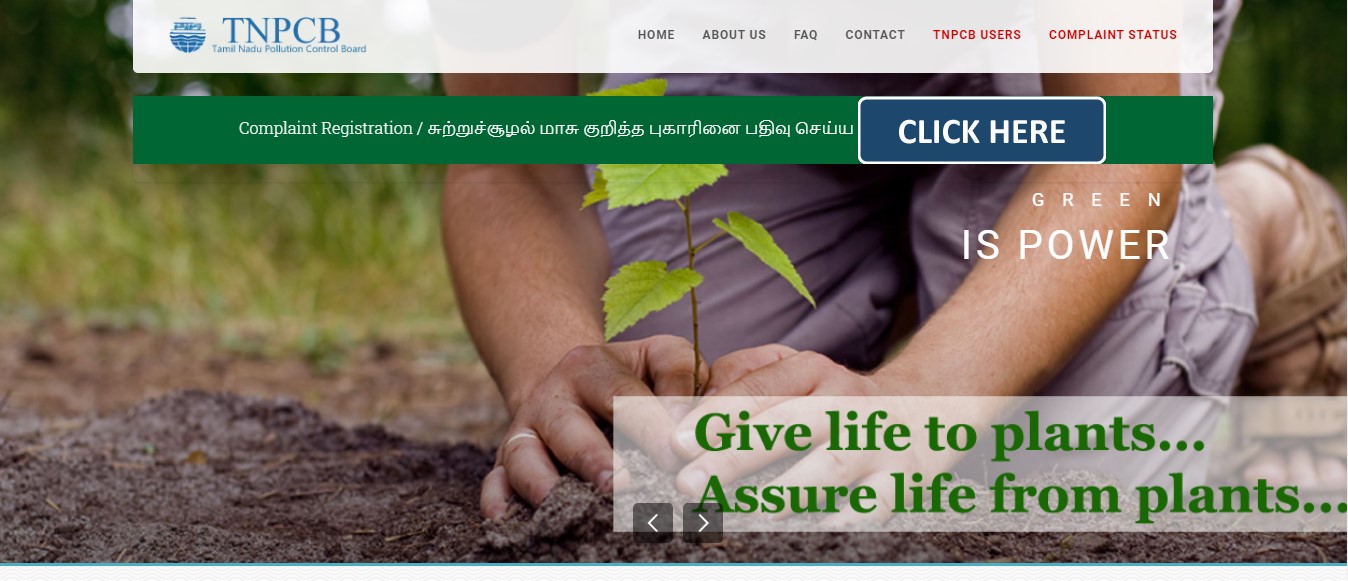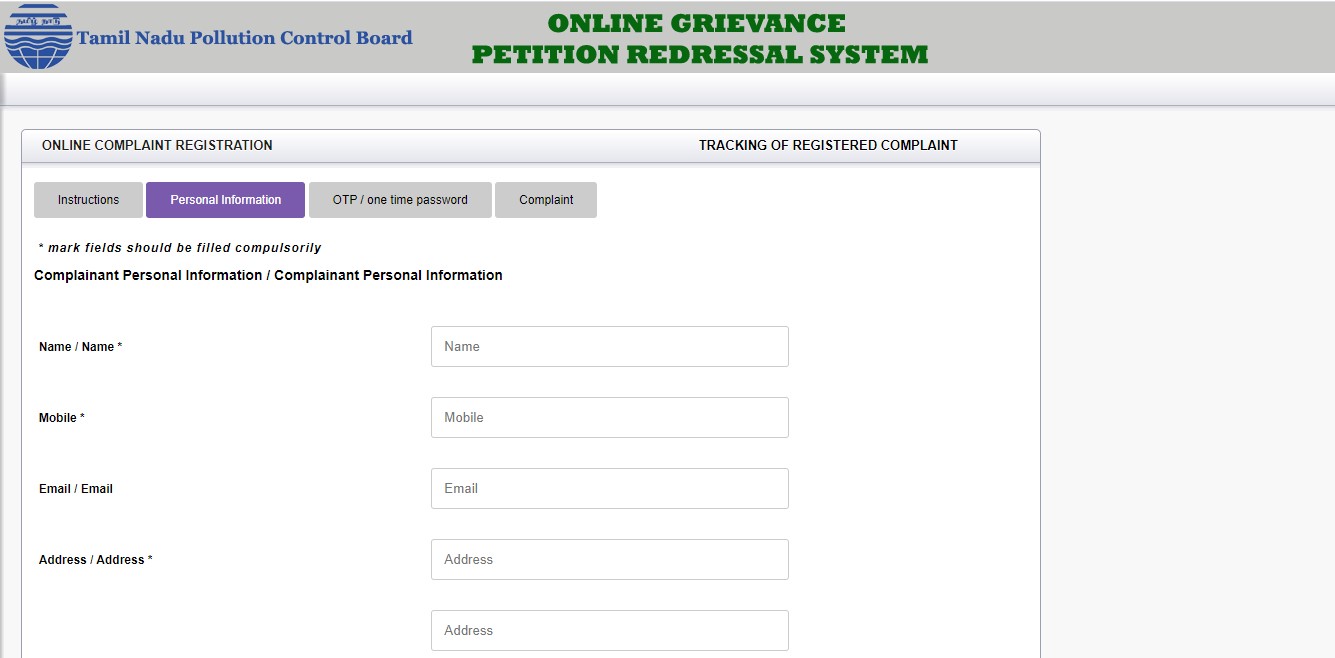[ecis2016.org] The Tamil Nadu Pollution Control Board (TNPCB) is the statutory body responsible for enforcing pollution control laws in Tamil Nadu
Environment protection and the conservation of natural resources has been a priority for the government in India. Every state has a board that is responsible for implementing environmental laws and creating environmental awareness among people, under the supervision of the CPCB (Central Pollution Control Board). The Tamil Nadu Pollution Control Board (TNPCB), the state pollution control board for Tamil Nadu, has steered numerous environment-friendly initiatives related to water conservation and promotion of cleaner technologies by industries across the state. The Board is also responsible for issuing pollution certificates or licenses for industries that are planning to set up their operations in the state.
You are reading: All you need to know about the Tamil Nadu Pollution Control Board (TNPCB)
Also read our guide on TNREGINET to know about how to use the Tamil Nadu govt portal to get information on guideline value and more in the state.
About TNPCB
The Tamil Nadu Pollution Control Board (TNPCB) is a statutory body in Tamil Nadu, established in 1982, responsible for steering sustained efforts towards pollution control and improved management and tackling critical environment-related issues. It is responsible for enforcing the provisions and rules of the Water (Prevention and Control of Pollution) Act, 1981, the Air (Prevention and Control of Pollution) Act, 1981 and the Environment (Protection) Act, 1986. The Board has its head office in Chennai.
Functions of the TNPCB
The TNPCB is entrusted with various functions under the provisions of the Water (Prevention and Control of Pollution) Act, 1974 and the Air (Prevention and Control of Pollution) Act, 1981:
- Preparing a comprehensive programme and advising the state government on matters relating to the prevention, control and abatement of water and air pollution.
- Inspecting the sewage and trade effluent treatment plants for their effectiveness; reviewing the plans and specifications for corrective measures.
- Inspecting the industrial plants/ manufacturing process, any control equipment and providing directions for prevention and control of air and water pollution.
- Inspecting the air pollution control areas for assessing the air quality and taking suitable measures.
- Setting effluent standards for sewage and trade effluents and for emission of air pollutants into the atmosphere from industrial plants and automobiles or other sources.
- Developing economically viable treatment technology for sewage and trade effluents.
- Collecting samples of sewage and trade effluents and emissions of air pollutants and analysing the same for specific parameters.
- Collaborating with the Central Pollution Control Board in training persons engaged in programmes relating to prevention, control or abatement of water and air pollution and steering mass education programmes.
- Executing other functions as may be prescribed by the state government or Central Pollution Control Board.
[ecis2016.org] All you need to know about the Chennai Rivers Restoration Trust (CRRT)
TNPCB: Online complaint registration
The TNPCB, through its official website, enables citizens to register their complaints online. Citizens can register complaints related to environmental pollution caused by industries alone. Moreover, there is a facility to track the complaint status by entering the complaint ID and registered mobile number.
Here are the steps to register a complaint through the TNPCB portal:
Step 1: Visit the official TNPCB website and click on ‘Online Grievance’.
Read also : Madras HC steps in again to safeguard Chennai’s marshland

Step 2: You will be directed to the Online Grievance Petition Redressal System page.

Step 3: Provide personal information such as name, mobile number, email ID, address, and pin code. Enter the OTP, which will be sent through SMS.

Step 4: On the next page, fill in the complaint details by specifying the type of complaint – i.e., water pollution, air pollution, etc. Enter details related to location, such as district, village, etc. Provide relevant documents and click on ‘submit’.
The complaint filed through the TNPCB portal will be sent to the District Environment Engineer. The online facility will facilitate early investigation and redressal. A complaint ID will be generated that can be used to track the TNPCB complaint status.
[ecis2016.org] Everything you need to know about Tamil Nadu Slum Clearance Board (TNSCB)
TNPCB: Latest news
Tamil Nadu Pollution Control Board (TNPCB) takes action against industries for illegal discharge of effluents into the Mettur dam
In March 2021, the Tamil Nadu Pollution Control Board (TNPCB) informed the southern bench of the National Green Tribunal (NGT) that it had initiated action against the industries responsible for the illegal discharge of effluents into Mettur dam.
Read also : Godrej Properties launches 100-acre township project in Bengaluru
The Board began proceedings based on a report submitted by an expert committee formed by the NGT. There were about 40 industries in the region producing fertilisers and other products based on hazardous chemicals.
Madras High Court extends stay restraining state from permitting new stone crushing units
Considering the scale of pollution caused due to stone crushing units and the flouting of rules by industries, the Madras High Court has extended the stay restricting the state from permitting new stone crushing units.
In 2019, the Board had removed the minimum distance rule that required stone crushers to maintain a 1-kilometre distance between any two units, after a proposal made by the Stone Crushers Association (SCA). The move was aimed at encouraging the production and use of M-Sand in construction instead of river sand. M-Sand or manufactured sand is produced by crushing blue metal jellies either in stone crushers in an extended facility or in standalone M-Sand units. However, many environmental activists had opposed the move as reducing the distance would bring the stone crushing units closer and result in the release of a huge amount of particulate matter into the air.
The court said that the board acted against the recommendations of the National Environmental Engineering Research Institute (NEERI), in 2019. The NEERI had earlier recommended in its resolutions, to maintain a 1-km distance between one stone crushing unit and the next unit. The court further added that the relaxation of norms was also made applicable for existing stone crushers and M-Sand units. The court issued a stay order concerning the opening or re-opening of stone crushing units.
Also read about TNEB online application for new connection
TNPCB: Contact details
76, Mount Salai, Guindy, Chennai – 600 032
Phone number: 044 – 22353134 – 139
E-mail ID: tnpcb-chn@gov.in
FAQs
Where is the headquarters of the TNPCB?
The headquarters of the TNPCB is in Chennai.
Who is the chairman of Tamilnadu Pollution Control Board?
AV Venkatachalam is the chairman of the TNPCB.
Source: https://ecis2016.org/.
Copyright belongs to: ecis2016.org
Source: https://ecis2016.org
Category: Lifestyle





